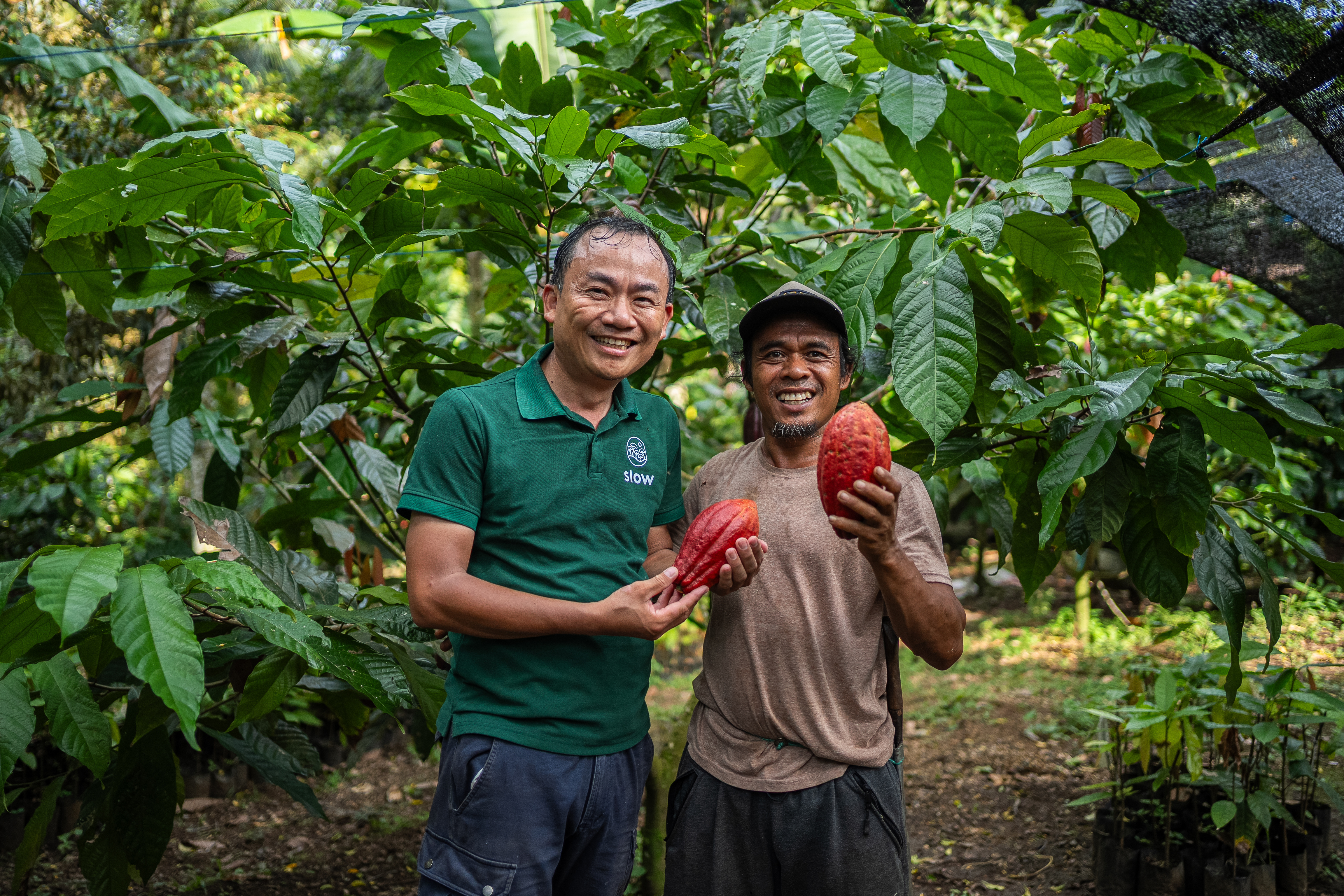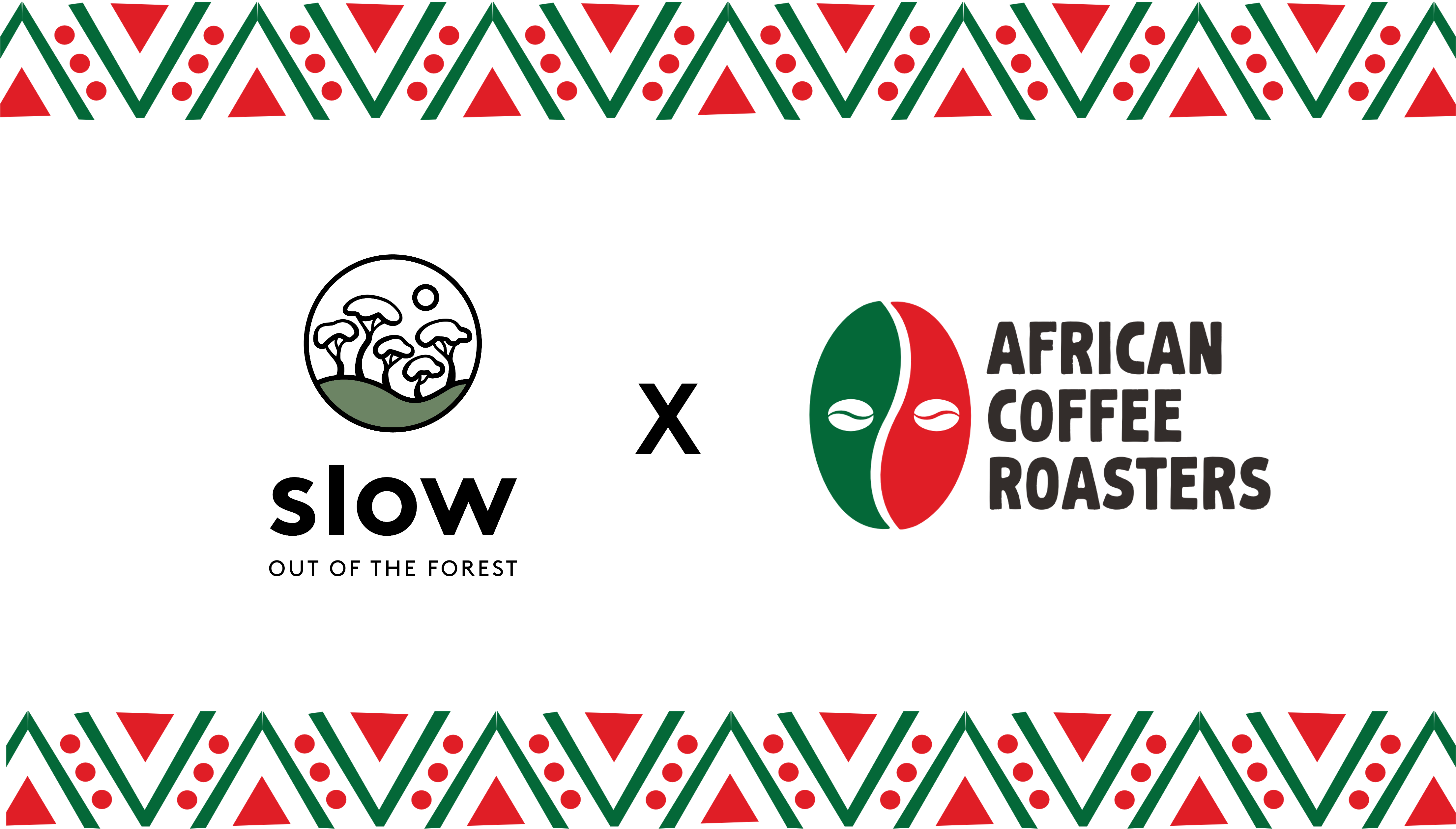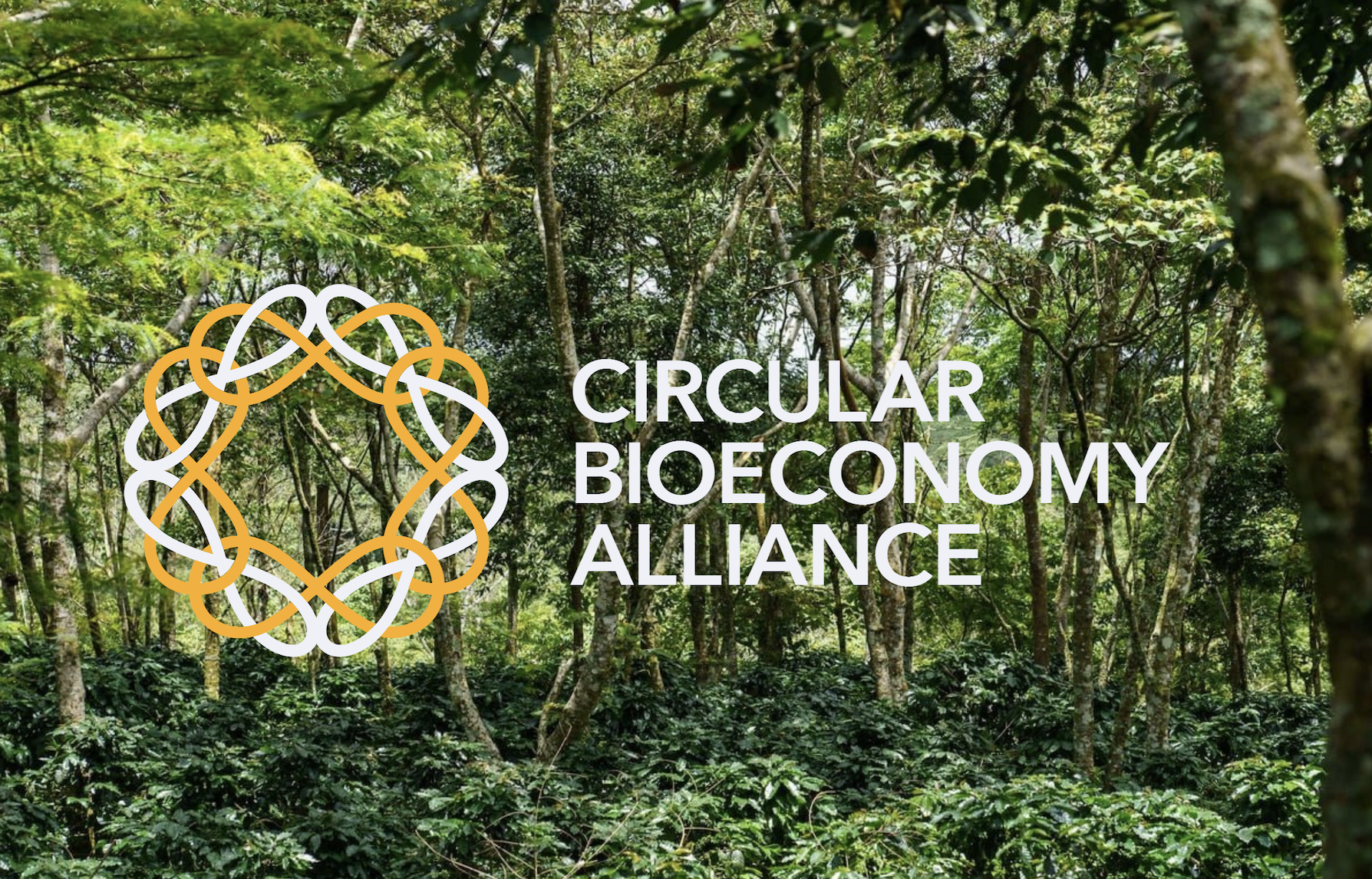Earth Day: Four ways to reduce your coffee and chocolate footprint
Earth Day reminds us that change doesn't have to wait for sweeping policy or perfect systems. Often, it starts with something as simple—and as...
Apr 22, 2025 - 2 min read

Coffee and chocolate are two of the most loved—and carbon-heavy—products in our daily lives. But they also hold untapped potential to reduce emissions, restore nature and support communities.
Here are four ways your choices can make a difference:
These products often pass through a maze of intermediaries before they reach your cup or bar.
The more steps in the chain, the harder it is to trace their full environmental and social footprint.
Choosing brands that manage the entire journey—from farming and processing to roasting and shipping—makes that footprint clearer.
At Slow, we manage this value chain directly, ensuring every step meets high environmental and social standards.
It's easy to label something "sustainable." It's harder to prove it.
Traceability means knowing where your coffee or cocoa was grown, who grew it, and how.
At Slow, we begin traceability starting at the farm level—so every product can be linked back to the people and practices behind it.
That level of accountability helps protect farmer identities, upholds quality and grounds climate claims in verifiable data—not just marketing.

Monoculture plantations dominate much of the tropics. They degrade soil, reduce biodiversity and leave farms vulnerable to climate shocks.
But coffee and cocoa don't have to be grown this way.
They can grow in agroforestry systems—where food crops grow under the shade of trees, mimicking forest ecosystems. These regenerative systems not only restore biodiversity and improve soil health—they also store more carbon and protect long-term yields.
At Slow, we support farmers to make this transition, replacing monocultures with more diverse, shade-grown systems.
Most coffee begins with axes and fire. At Slow, it begins with bringing the forest back.
Coffee's biggest climate impact often comes not from roasting or shipping, but from clearing forests to make way for farms.
According to a 2020 report by the World Resources Institute, coffee was among the top five agricultural commodities driving tropical deforestation from 2001 to 2015. Satellite data from Global Forest Watch and Trase also link coffee production to forest loss in Brazil, Vietnam, Colombia and Ethiopia.

Even with sustainable practices, the carbon debt from deforestation can take decades—or even up to 100 years—to repay.
At Slow, we analyse farm polygon maps using the Global Forest Watch platform, drawing from historical land cover data provided by the Hansen Land Management database. We apply a 20-year dataset to identify land-use changes and avoid sourcing from recently deforested areas.
In line with GHG Protocol standards, we use 5% linear discounting approach to fairly distribute emissions over time, helping ensure our climate claims are rooted in science, not slogans.
Real impact doesn't come with a label. It's in the chocolate bar that helped regrow a forest. The coffee restoring healthy soil. And the food system being rebuilt—one informed choice at a time, with Slow helping to lead the way.

Earth Day reminds us that change doesn't have to wait for sweeping policy or perfect systems. Often, it starts with something as simple—and as...

Big news from Slow. African Coffee Roasters is now part of the Slow family. And this isn’t just an acquisition—it’s a major step forward in how...

A few years ago, coffee and chocolate were just products. But at Slow, we’re changing the story. We’re not just selling beans and cocoa, we’re...